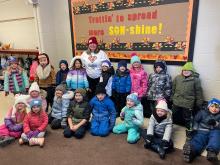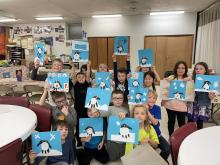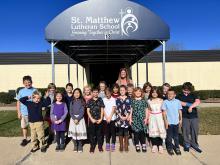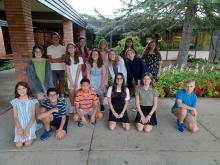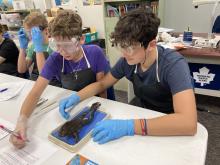
As parents, educators, and Christians, we believe that our faith should shape everything we do. Our love for the Savior isn't limited to an hour on Sundays, nor is saving faith instructed only in Religion class. Instead, our students are taught to incorporate their faith in every subject and life situation, both within and outside of school. In addition, our staff takes great care to select curriculum that meets or exceeds standards, as well as that which does not conflict with our Christian beliefs.

